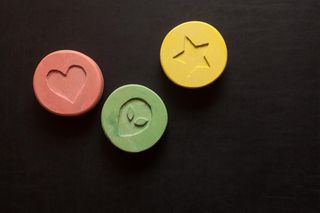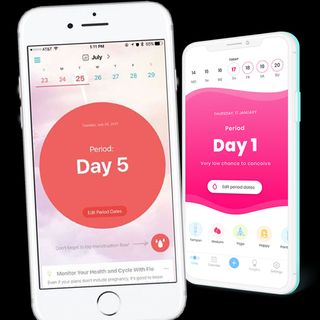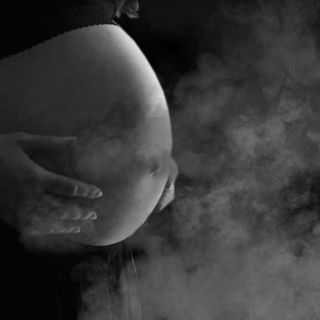
With Dedicated Research, MDMA Could Become Psychiatric Medicine
Current research states that pure MDMA, different from the street drug Ecstasy, can help cure alcohol addiction and PTSD.

What if drug-assisted psychotherapy led to a cure, rather than mere functionality? Psychiatrists are testing out a new approach to treating conditions like alcohol abuse and post-traumatic stress disorder (PTSD) with an unlikely ally — MDMA, the primary ingredient in the street drug known as ‘ecstasy’ or ‘molly’.
Recent research has proposed MDMA as a possible treatment option in tandem with psychotherapy to reduce alcohol addiction relapses. Previous research has also supported MDMA’s effectiveness as a psychotherapy catalyst in treating PTSD.
MDMA, or 3,4-Methylenedioxymethamphetamine is a psychoactive, recreational drug taken to cause an increased sensation of positivity or pleasure. The clinical use of MDMA is mainly as a catalyst — the drug reduces the brain’s fight-or-flight response and promotes higher-level brain processing (like planning, focus, and personality development). This can help a traumatized individual better process the root of their trauma — taking a step towards removing symptoms rather than functioning with them.
In a 2016 TEDx talk, Is MDMA Psychiatry’s Antibiotic, psychiatrist Ben Sessa — also responsible for the research on MDMA and alcohol de-addiction — talks about how individuals can better process and talk about their trauma with a dose of MDMA, hence rendering psychotherapy more effective. He said of a trial in which PTSD patients were given MDMA-assisted psychotherapy: “They were cured…We don’t use the cure word in psychiatry.”
While ecstasy/MDMA are often used to mean the same thing in common parlance, an important distinction must be made when MDMA is used in a medical context. Ecstasy, while marketed as pure MDMA, is often mixed with other toxic compounds like PMA or PMMA , which are drugs with MDMA-like psychedelic effects — and more dangerous, life-threatening side effects when ingested.
Pure MDMA, on the other hand, prompts the release of a cocktail of hormones like prolactin, serotonin, and oxytocin, which puts the brain in a highly positive, content state. Pure MDMA used for medical reasons is also made in controlled environments by registered doctors and scientists, rather than in the black market, where there is no quality testing available.
Related on The Swaddle:
Study Suggests MDMA Could Help People With PTSD, Autism
While there are a bunch of adverse long-term effects that pop up on the screen as soon as one searches for MDMA, like brain/nerve/kidney damage and cardiovascular collapse, all of those are related to recreational ecstasy made with no quality controls.Michael Mithoefer, a psychiatrist who conducts research using MDMA (manufactured in an FDA-registered lab in the USA), in tandem with psychotherapy, to treat post-traumatic stress disorder (PTSD), told Popular Science that 99% pure, medical-use MDMA, as of now, has yielded short-term side effects like dizziness, impaired balance, and anxiety. Long-term effects of medicinal MDMA must still be looked into.
Beyond side effects, regulation poses another hurdle to MDMA’s regular use during psychotherapy. “The combination of a drug-affected patient with non-drug-affected therapists could make patients vulnerable during psychotherapy. This suggests a need for stringent training and oversight of MDMA-assisted therapy. Approval of MDMA will also lead to off-label prescribing, with doctors prescribing the drug for conditions other than PTSD. This could include a range of conditions, such as depression and substance use disorders, and various patient groups. … To date, no controlled studies have assessed the safety of MDMA in young people. Planned studies in adolescents with PTSD will thus be important,” writes Gillinder Bedi for The Conversation.
Considering both the notorious reputation MDMA enjoys, and the small, but promising amount of evidence given by clinical trials regarding its contributions to psychotherapy, a conversation around the drug, its legality and the stigma around it must be reopened. A major benefit of this can be more positive attitudes towards funding more legal clinical trials. Patients would also not have to revert to unregulated use of MDMA for therapy, known as underground psychedelic psychotherapy, which is dangerous, due to no proper scientific consensus on dosage, and illegal drug creation/procurement.
“If there’s some terrible outcome where someone dies or develops psychosis, that’s bad news for the rest of us trying to initiate scientific studies,” Dr. Nigel Strauss, a psychiatrist, told ABC with respect to unsanctioned therapeutic MDMA use.
While the idea that MDMA as the ‘psychiatrist’s antibiotic’ seems quite far-fetched now, further research — currently balanced on a delicate balance of both funding, and easing away stigma — might turn the tables.
Aditi Murti is a culture writer at The Swaddle. Previously, she worked as a freelance journalist focused on gender and cities. Find her on social media @aditimurti.
Related


Period Trackers Are Feeding Facebook Data About Women’s Sex Lives, Contraceptive Use
